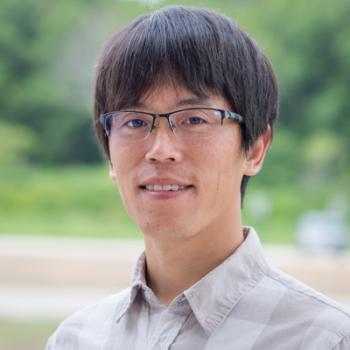Advancing quantum information science with hybrid cavity magnonics
With recent demonstration of quantum computing and quantum communication, quantum information science has been changing our world in an unprecedented way. To fully explore the power of quantum information processing, it is important to further combine discrete quantum elements and build distributed quantum networks. However, this poses significant technical challenges because quantum coherence can be easily destroyed as the signal propagates through different systems. In this talk, I will show that magnons—the collective excitations of magnetization—provide a promising solution for efficiently converting quantum information among different forms while preserving the coherence. Specifically, cavity magnonics exhibits excellent compatibilities with other physical systems in the microwave, mechanical and optical domains. Thanks to the large spin density in our system, the interactions between magnons and other information carriers such as photons and phonons are drastically boosted which is critical for protecting the signal coherence. Most importantly, the tunability of magnons provides unparalleled controllability in the transduction process. Therefore, coherent magnon-based signal transduction can be achieved. I will finish the talk by describing opportunities toward on-chip integration of quantum magnonics.
Date and Time
Location
Hosts
Registration
-
 Add Event to Calendar
Add Event to Calendar
- 1420 Austin Bluffs Pkwy
- Colorado Springs, Colorado
- United States 80918
- Building: Osborne Center for Science and Engineering
- Room Number: A204
- Contact Event Host
-
Zbigniew Celinski
Department of Physics
UCCS
- Co-sponsored by UCCS
Speakers
 Xufeng Zhang of Argonne National Laboratory
Xufeng Zhang of Argonne National Laboratory
Advancing quantum information science with hybrid cavity magnonics
With recent demonstration of quantum computing and quantum communication, quantum information science has been changing our world in an unprecedented way. To fully explore the power of quantum information processing, it is important to further combine discrete quantum elements and build distributed quantum networks. However, this poses significant technical challenges because quantum coherence can be easily destroyed as the signal propagates through different systems. In this talk, I will show that magnons—the collective excitations of magnetization—provide a promising solution for efficiently converting quantum information among different forms while preserving the coherence. Specifically, cavity magnonics exhibits excellent compatibilities with other physical systems in the microwave, mechanical and optical domains. Thanks to the large spin density in our system, the interactions between magnons and other information carriers such as photons and phonons are drastically boosted which is critical for protecting the signal coherence. Most importantly, the tunability of magnons provides unparalleled controllability in the transduction process. Therefore, coherent magnon-based signal transduction can be achieved. I will finish the talk by describing opportunities toward on-chip integration of quantum magnonics.
Biography:
Dr. Xufeng Zhang has been working as an assistant scientist at the Center for Nanoscale Materials, Argonne National Laboratory, and CASE fellow of the University of Chicago since 2018. Dr. Zhang received his Ph.D. in Engineering from Yale University in 2016, where he worked on hybrid magnonics in Prof. Hong Tang's group. After that he joined Argonne National Laboratory as Nikola Tesla postdoctoral fellow. His research interests include magnon spintronics, integrated photonics, and nanomechanics. Dr. Zhang is the winner of the Henry Prentiss Becton Graduate Prize at Yale University and Chinese Government Award for Outstanding Students Studying Abroad.
Email:
Address:Center for Nanoscale Materials, Argonne National Laboratory, 9700 S Cass Ave, Lemont, Illinois, United States, 60439
